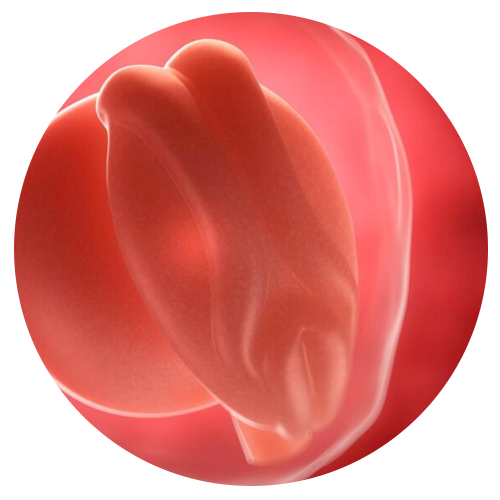1-4 weeks pregnant: Pregnancy Symptoms & Baby Development
Find out what to expect from every week of your pregnancy.
One to four weeks pregnant is how many months?
Month 1 (Trimester 1)
Baby development at 1-4 weeks
Vitamin C

Placenta
Folic Acid
Dosage will be dermined by Doctor.
At this stage, there’s not much to see. Your newly-fertilised egg is called a zygote1. 90 hours after fertilisation, cells divide and subdivide into a tiny mass that will travel from your fallopian tubes to your uterus. After four weeks, your baby will be the size of a poppy seed and will be protected by an amniotic sac. This is filled with cushioning fluid, and attached to a tiny yolk sac that provides your baby with nourishment. The outer layer will develop into the placenta, providing your baby with oxygen and nutrients.
Around 6-10 days after ovulation you may notice some light spotting as the bundle of cells, now known as a blastocyst, attaches to the wall of your womb.

It’s unlikely you’ll look pregnant: most first-time mums don’t start showing until at least week 12. It’s unlikely you’ll feel pregnant, too, but that will change when the ‘pregnancy hormone’ – human chronic gonadotrophin2 – becomes active. That said, you’re starting to grow a brand new organ – the placenta.
By week 4 of pregnancy, your baby will get their nourishment from a tiny yolk sac, but this will be replaced by the placenta2. This brand new organ will supply your baby with oxygen and nutrients needed to grow and develop. It also passes antibodies to your baby, for resistance to infection throughout pregnancy3.
Another function of the placenta is hormone production3. These hormones help your baby grow and develop while supporting your own physical changes. Progesterone and relaxing, for example, both have a relaxant effect on your muscles, allowing your uterus to adapt and make room for your growing baby4.

- A missed period
- A need to wee more frequently
- A metallic taste in your mouth
- Changing tastes in food Morning sickness
- A milky white discharge from your vagina (perfectly normal)
Focus on Vitamin C
Vitamin C is a vital nutrient in the first 4 weeks of pregnancy. It plays an important role in keeping cells healthy and contributes to normal collagen function. Collagen gives support and structure to tissue and organs such as skin, blood vessels and cartilage6, and is one of the building blocks of your rapidly growing placenta.
Vitamin C supports the immune system by keeping cells healthy and helping wounds to heal.

There’s nothing specific to avoid during individual weeks, but throughout your pregnancy, it’s wise to give the following a miss:
![]() Raw and undercooked meat
Raw and undercooked meat
![]() Unpasteurised milk and dairy products
Unpasteurised milk and dairy products
![]() Liver, and excessive consumption of foods high in vitamin A
Liver, and excessive consumption of foods high in vitamin A

